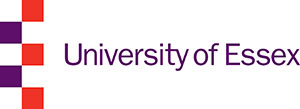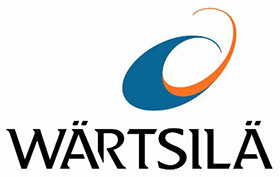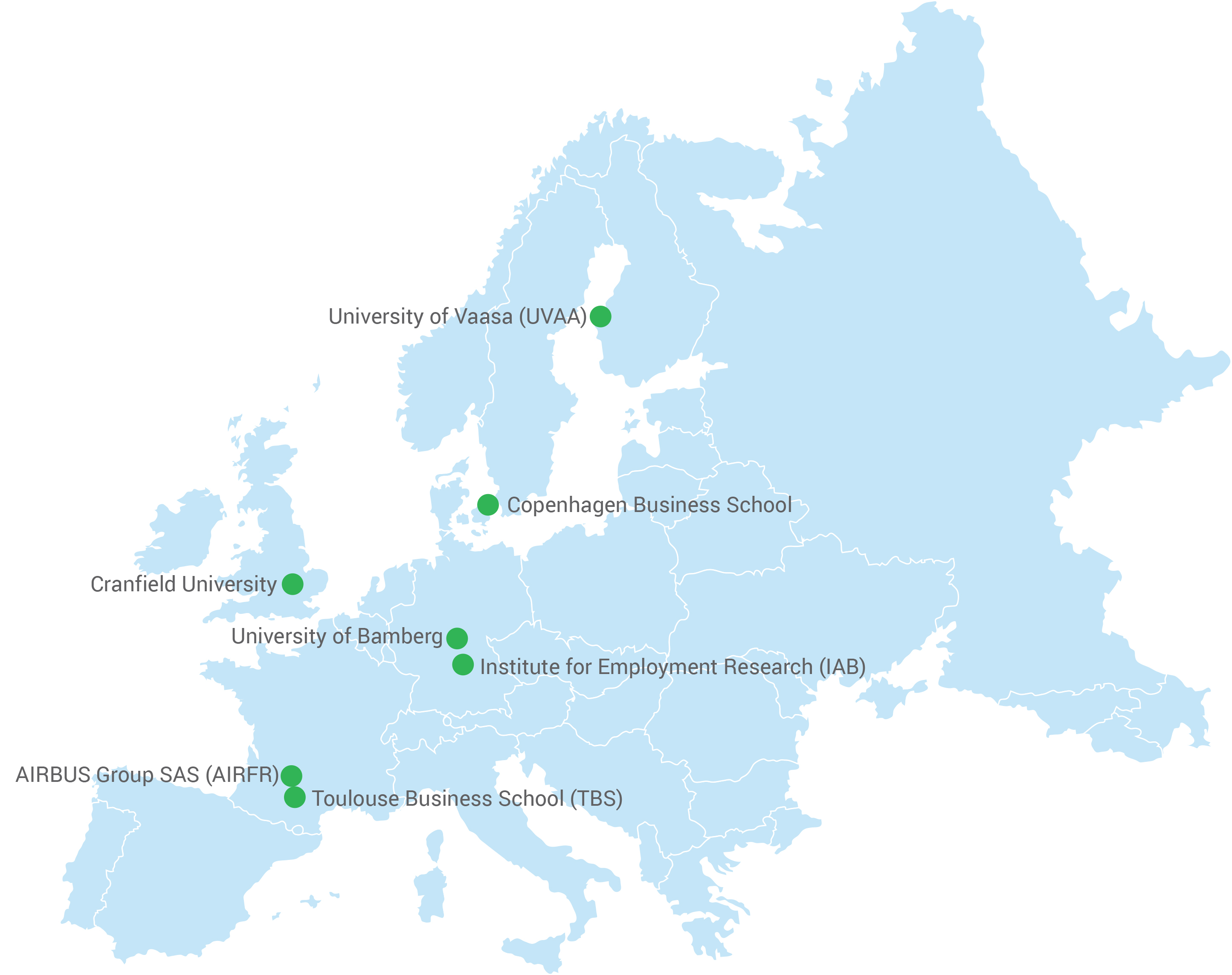
Beneficiaries
University of Bamberg
The University of Bamberg is an internationally recognised centre for excellent research and teaching in the Social Sciences, Economics and Business Administration with a particular emphasis on labour markets and education, including a long-standing track record in funded research on migration. The University’s research excellence in this area is underpinned by the Leibniz Institute for Educational Trajectories in Bamberg. Research cooperation between the University’s Faculty of Social Sciences, Economics and Business Administration and the Federal Institute for Employment Research in nearby Nuremberg is close. The Bamberg Graduate School of Social Science is funded under the German Excellence Initiative to provide outstanding graduate training and supervision in English to its international student body.
Scholars in charge:
Copenhagen Business School
CBS has a strong international reputation and is often highly placed in external rankings (in 2015 rankings from Eduniversal placed CBS # 3 in the world and the University of Texas at Dallas placed CBS # 7 in Europe and # 77 in the world). CBS has a very large annual output in terms of articles in peer reviewed journals (514 in 2015) and an extensive cooperation with industry. CBS has ‘triple crown’ accreditation (AMBA, EQUIS and AACSB).
CBS has been quoted as one of the most interesting business schools in the world today, attracting a large number of international staff (more than 1/3 of the academics). With the distinctiveness of its diversity, CBS aims to become a world-leading business university with research – and teaching – excellence in classical management disciplines (including finance and economics, accounting and operations management, marketing, strategic management and organisation) and in disciplines that place business in a wider social, political and cultural context. CBS has a particular responsibility to bring knowledge and new ideas to companies and business organisations, to the next generation of business leaders, and to society as a whole.
Students are trained within business knowledge and business skills, combined with reflective thinking and critical approaches, it is important for CBS that its students are of value to society and are equipped to face urgent problems of society today. At CBS we challenge traditional business research and thereby improve it.
Scholar in charge:
Cranfield University
Cranfield University creates leaders in technology and management, partnering with business and governments to deliver transformational research, postgraduate education and professional development.
Cranfield is world-leading in its contribution to global innovation.
We specialise in the aerospace, defence and security, energy and power, environment and agrifood, management, manufacturing, transport systems, and water sectors.
The high-quality and distinctive nature of Cranfield’s work has been recognised through numerous prizes and awards, including the award of the prestigious Queen’s Anniversary Prize in Further and Higher Education on five separate occasions.
Our School of Management is a world leader in management education and has been helping individuals and businesses to succeed by transforming knowledge into action for over 50 years.
The School of Management is ranked as number one in the world for its economics teaching (the FT Global MBA Ranking 2017); our Management MSc is ranked number one in the UK and seventh in the world (The Economist Which MBA? Masters in Management (MiM) 2017 rankings); and our customised executive education programmes are ranked in the top 10 in Europe.
The School of Management will host the ESRs.
Scholar in charge:
Institute for Employment Research (IAB)
IAB was founded as the research institute of the Federal Employment Agency (BA) in 1967 and is the largest labour market research institute in Germany today. 150 economists, sociologists and researchers study micro and macro, international, regional and firm level as well as institutional aspects of the labour market. IAB also provides large-scale register and survey data sets for the research community. It provides evidence-based policy advice at the international, EU- and national level. IAB runs also a Graduate Program with about 20 doctoral students in cooperation with universities. The statute of IAB guarantees the complete independence of IAB with respect to all aspects of research and policy advice. The German Council of Science and Humanities (Wissenschaftsrat) classified the research and policy advice conducted at IAB as very good and excellent.
Scholars in charge:
Toulouse Business School (TBS)
TBS is a French ‘Grande Ecole’ Business School (>4,200 students) with an academic focus on business, social and economic sciences. TBS is part of Toulouse University and a partner in the University Doctoral School in economics, management and law.
Founded in 1903 by the local Chamber of Trade and Industry it has traditionally extensive cooperation with industry and the local, regional, national as well as international corporate environment. TBS has ‘triple crown’ accreditation (AMBA, EQUIS and AACSB) since 2003. With its large network of international partner universities, TBS facilitates internationally oriented degree programmes and research projects. The promotion and development of young talent is of particular importance to TBS (motto: “Think & Create”). Our graduates are prepared for reflective responsible business with academic and professional preparation for openness, audacity, enthusiasm and ethical standards.
Scholars in charge:
University of Vaasa (UVAA)
UVAA is a multidisciplinary university offering degrees at all academic levels from Bachelor’s degrees to Doctorates. Located on the western coast of Finland, UVAA offers a modern study environment for 5,000 students in three faculties: Business, Technology and Philosophy. UVAA produces graduates who are experts and leaders with an international orientation. UVAA is the second largest provider of university-level business education in Finland. Management studies is a recognised strength and focus area of the research conducted within the University (others being finance, energy technology and multilingualism).
ESRs will be part of the research group in Human Resource Management (HRM). Comprising five professors, seven post-doctoral researchers and almost 30 doctoral students, the HRM research group is Finland’s largest scientific research group dedicated to examining people management issues in organisations. The group produces high-quality academic research on a variety of HRM-related topics that companies can utilise to improve their competitiveness – through the creation of a skilled and more committed workforce, and via more effective HRM processes that support strategic objectives. The main focus areas of the group’s research are international HRM, strategic HRM, and leadership.
Scholars in charge:
AIRBUS Group SAS (AIRFR)
Airbus Group is a global pioneer in aeronautics, space and defence-related services, creating cutting-edge technology. The Airbus Group operates in more than 170 locations worldwide and employs 138,622 employees in 2015. Most of the Company’s order book and growing industrial footprint now lies beyond its European borders. Such examples can be seen in aircraft final assembly lines in Tianjin, China, and Mobile, Alabama (US). We also produce helicopters in Brazil, maintain research centres in Singapore, India, the US, China and Russia, and we run Maintenance, Repair and Overhaul (MRO) hubs on five continents.
Airbus Group’s strong European roots as the largest aerospace and defence company in Europe, the Airbus Group is proud of its European roots and achievements. We make a vital and growing contribution to the economies of our home countries, France, Germany, Spain and the UK, and around 35,500 of our suppliers (or 65% of our total spend) are in our home markets. We also help to preserve European competitiveness on the world stage: since our foundation in 2000, we have created 15,000 new high-tech jobs in Europe alone.
Scholar in charge:
Partner organisations
atrain GmbH
atrain is a global consulting company specialised in strategic talent assessment and development solutions. It helps organisations build their human capital by implementing processes and systems that create alignment between the organisational strategy and goals, the desired culture and values, as well as the competencies of leaders and professionals across the company. atrain´s core areas of expertise include: people and organisational development, talent and leadership development services, assessment services, questionnaires and analysis.
European Migration Network (EMN)
The European Migration Network (EMN), established and coordinated by the European Commission, is an EU network of migration and asylum experts who work together to provide objective, comparable policy-relevant information, comprised of National Contact Points (EMN NCPs) and national networks of relevant stakeholder organisations. The EMN produce reports, studies and policy briefs with analysis of policy and legislative development and implementation, facilitate an information exchange system for stakeholders, as well as maintains a glossary of migration and asylum-related terms. The EMN partner in the GLOMO Project is the Estonian National Contact Point (EE EMN NCP), located in the School of Governance, Law and Society, Tallinn University.
Person in charge:
Federal Ministry of Labour and Social Affairs
BMAS is part of the German government, which is responsible for creating a strong framework for more jobs, promoting social inclusion and maintaining stable social security systems. It seeks to identify interministerial solutions and liaises with the relevant Länder and municipalities when implementing its measures, and cooperates closely with Committee on Labour and Social Affairs, the primary parliamentary decision-making body. The immediate area of responsibility of the BMAS includes the Federal Labour Court, the Federal Social Court, the Federal lnsurance Office – which legally supervises organisations such as the German old-age pensions insurance – and the Federal lnstitute for Occupational Safety and Health. Furthermore, the Federal Employment Agency is under the legal supervision of the BMAS.
Person in charge:
German Federal Employment Agency, Brussels Office
The Federal Employment Agency is the Public Employment Services in Germany and with some 100,000 employees the key organisation in charge of all aspects of labour market policies. The international placement of workers and the integration of immigrants into the labour market is one its main objectives. The European Representation of the BA in Brussels is involved with all European aspects relevant for German labour market policies, facilitating European worker mobility is an important part of its activities.
Person in charge:
International Community Platform
The International Community Platform (ICP) is a Dutch employer’s organisation that conducts research in the field of expatriate employment, and contributes to policy-making aimed at the improvement of recruitment and retention of high potential international employees in the Netherlands in association with an extensive network of international businesses and governmental organisations. ICP also collects data and produces reports on various topics concerned with careers and well-being of internationals in the Netherlands.
Philips Electronics Nederland B.V.
Philips Electronics Nederland B.V. is one of the leading health technology companies and leader in diagnostic imaging, image- guided therapy, patient monitoring and health informatics. Philips operates as a multinational company and employs approximately 77,000 employees with sales and services in more than 100 countries.
Person in charge:
The RES-Forum Ltd.
The RES Forum has the following vision and mission for its members:
To establish an objective and easy-to-use resource that assists and helps member companies in their international HR and mobility matters
To provide our members with comprehensive benchmark programmes that cover policy and practice across a wide range of industry sectors
To provide our members with the ability to raise a question and find an answer across our network of participating companies and Technical Partners
To offer opportunity for professional development to our member companies through participation on Forum initiatives. To assist each other through collaboration and knowledge sharing to build an unrivalled community of engaged global HR professionals.
Person in charge:
University of Essex
ISER is a centre for the production and analysis of longitudinal studies. It encompasses the ESRC Research Centre on Micro-Social Change and the internationally-renowned Microsimulation Unit, which hosts the EUROMOD project. It is also responsible for the design and management of the UK Household Longitudinal Study known as Understanding Society and its predecessor, the British Household Panel Survey. ISER is an interdisciplinary research centre with a thriving PhD program.
ISER’s research includes survey methodology as well as the analysis of various social and economic aspects of people’s lives including health and inequalities. ISER’s research does not focus only on people living in the UK, but also includes Europe and other parts of the world.
Person in charge:
Wärtsilä Finland OY
Wärtsilä is a Finnish corporation that manufactures and services power sources and other equipment in the marine and energy markets. The core products of Wärtsilä include large combustion engines used in cruise ships and ferries. As of 2014 the company employed close to 18,000 workers in more than 70 countries and it is headquartered in Helsinki.
Wärtsilä has three main businesses; Power Plants focussing on the energy market, Ship Power focusing on the marine market and Services which is supporting both markets. Wärtsilä operates globally but its Ship Power division is heavily focused on Asia.
Person in charge:
Advisory Board
Prof. Dr. Jaime Bonache
Jaime Bonache is Full Professor of Organization Studies at Carlos III University of Madrid (Spain). He has also been Full Professor of International Human Resource Management at Cranfield School of Management (United Kingdom) and Esade Business School (Spain). For more than 20 years, Professor Bonache has been combining his teaching and research activities with consultancy in human resource management.
Professor Bonache’s academic publications include more than thirty articles in international journals, including Journal of World Business, Journal of Organizational Behavior, IJHRM, Organization Studies, Human Resource Management, and HRM Review. He has also been a guest editor of seven special issues of international academic journals on trends in global mobility. In addition to his articles, he has written and edited four books, one of them (Dirección de Personas, with Angel Cabrera) has been a best-seller in a number of Spanish-speaking countries. With a focus on international human resource management, he co-authored a book with Paula Caligiuri and David Lepak entitled Managing a Global Workforce (Wiley Publishers, 2012).

Prof. Dr. Chris Brewster
Chris Brewster is Professor of International Human Resource Management at Henley Business School, University of Reading, UK; Radboud University, Nijmegen, the Netherlands; and the University Vaasa, Finland. He had substantial experience as a practitioner and gained his doctorate from the LSE before becoming an academic. He researches in the field of international and comparative HRM. Chris is a frequent international conference speaker.
He has written or edited around thirty books, including, recently, the Handbook of Research on Comparative Human Resource Management; Managing Performance Abroad: a new model for understanding expatriate adjustment; and Varieties of HRM: A Comparative Study of the Relationship between Context and Firm. He has also published more than a hundred book chapters and over 200 articles in refereed journals. In 2002 Chris was awarded the Georges Petitpas Memorial Award by the practitioner body, the World Federation of Personnel Management Associations, in recognition of his outstanding contribution to international human resource management; and in 2006 Chris was awarded an Honorary Doctorate by the University of Vaasa, Finland.
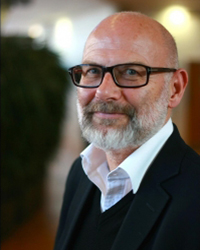
Prof. Dr. Marion Festing
Marion Festing is Professor of Human Resource Management and Intercultural Leadership at ESCP Europe’s Berlin campus and holds the Renault Chair of Intercultural Management. She has founded ESCP Europe’s Talent Management Institute and the Excellence Centre for Intercultural Management, which both link academic and practitioner communities by creating new knowledge and building platforms for networking and exchange.
Her research interest is in IHRM with a special emphasis on talent management, rewards and careers in various institutional and cultural contexts. Her work has been published in international journals, including Human Resource Management, International Journal of Human Resource Management, Human Resource Management Review, Academy of Management Perspectives, Journal of World Business and Management International Review. She has coauthored a textbook on International Human Resource Management (7th edn, Andover 2017) together with P.J. Dowling and A.D. Engle. Further, she serves as the editor-in-chief of the German Journal of Human Resource Management and is the German ambassador of the HR-Division of the Academy of Management.
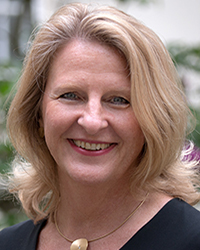
Prof. Dr. Jan Selmer
Jan Selmer (PhD, Stockholm University, Sweden) is Professor, Department of Management at Aarhus BSS, School of Business and Social Sciences, Aarhus University, Denmark. His research interest lies in cross-cultural management with a special focus on global mobility. For two decades, he has been an academic expatriate, most of the time in Hong Kong. He is the Founding Editor in-Chief of the Journal of Global Mobility: The Home of Expatriate Management Research (Emerald). His academic production includes ten books and numerous journal articles in international peer-reviewed academic journals. His latest book from 2017, Research Handbook of Expatriates (Edward Elgar), co-edited with Yvonne McNulty, is the first of its kind. Much earlier, Expatriate Management: New Ideas for International Business, published in 1995 by Quorum Books, has become a classic text about the topic.


 Maike Andresen is Professor of Human Resource Management and Organisational Behaviour and Vice President for Research at University of Bamberg, Germany. Her primary research interests are in the area of international labour mobility, (global) career management, work flexibilisation, and management and organisation development. She has contributed numerous peer-reviewed articles to leading academic journals including European Management Review and Journal of Managerial Psychology and to edited volumes, and published or edited ten books. Maike currently serves on several editorial boards of academic journals and book series including Human Resource Management Journal and The International Journal of Human Resource Management and as a referee for several international journals. She has served as a visiting scholar at e.g. Copenhagen Business School. She is faculty member of a joint Master programme in European Human Resource Management together with Vlerick Business School, EM Lyon, Radboud University Nijmegen, Luiss Business School and Riseba University. Moreover, she raised Horizon 2020 research funds of almost €4million and coordinates the underlying international research project “Global mobility of employees” (GLOMO) that focusses on international careers of migrants and expatriates. The project will see eight partners from across Europe build an ambitious and unique network of experts in the field of global labour mobility in a longer-term bid to tackle increasing labour and skills shortages in the EU. The participating partners are University of Bamberg, Copenhagen Business School, Cranfield University, Institute for Employment Research, Toulouse Business School, University of Vaasa, Vrije Universiteit Amsterdam, and Airbus SAS. Moreover, she is a member of the 5C project investigating careers across 30 countries.
Maike Andresen is Professor of Human Resource Management and Organisational Behaviour and Vice President for Research at University of Bamberg, Germany. Her primary research interests are in the area of international labour mobility, (global) career management, work flexibilisation, and management and organisation development. She has contributed numerous peer-reviewed articles to leading academic journals including European Management Review and Journal of Managerial Psychology and to edited volumes, and published or edited ten books. Maike currently serves on several editorial boards of academic journals and book series including Human Resource Management Journal and The International Journal of Human Resource Management and as a referee for several international journals. She has served as a visiting scholar at e.g. Copenhagen Business School. She is faculty member of a joint Master programme in European Human Resource Management together with Vlerick Business School, EM Lyon, Radboud University Nijmegen, Luiss Business School and Riseba University. Moreover, she raised Horizon 2020 research funds of almost €4million and coordinates the underlying international research project “Global mobility of employees” (GLOMO) that focusses on international careers of migrants and expatriates. The project will see eight partners from across Europe build an ambitious and unique network of experts in the field of global labour mobility in a longer-term bid to tackle increasing labour and skills shortages in the EU. The participating partners are University of Bamberg, Copenhagen Business School, Cranfield University, Institute for Employment Research, Toulouse Business School, University of Vaasa, Vrije Universiteit Amsterdam, and Airbus SAS. Moreover, she is a member of the 5C project investigating careers across 30 countries. Thomas Saalfeld is Professor of Political Science at the University of Bamberg and Director of the Bamberg Graduate School of Social Sciences (BAGSS). Prior to his appointment to the Chair in Comparative Politics at the University of Bamberg he was Professor of Political Science at the University of Kent Canterbury. He is a Fellow of the (UK) Academy of Social Sciences (AcSS), Fellow of the (UK) Royal Society of Arts and member of the Advisory Board of the Italian Political Science Review. His research focuses on the political careers and representation of citizens of immigrant origin, legislative behaviour, parliamentary accountability and coalition government in European democracies. His work was published in academic journals including the European Journal of Political Research, International Studies Quarterly, the Journal of Legislative Studies, the Rivista Italiana di Scienza Politica, Parliamentary Affairs and West European Politics. His most recent publications include The Oxford Handbook of Legislative Studies (jointly edited with Shane Martin and Kaare W. Strøm, 2014) and The Political Representation of Immigrants and Minorities (jointly edited with Karen Bird and Andreas M. Wüst, 2011).
Thomas Saalfeld is Professor of Political Science at the University of Bamberg and Director of the Bamberg Graduate School of Social Sciences (BAGSS). Prior to his appointment to the Chair in Comparative Politics at the University of Bamberg he was Professor of Political Science at the University of Kent Canterbury. He is a Fellow of the (UK) Academy of Social Sciences (AcSS), Fellow of the (UK) Royal Society of Arts and member of the Advisory Board of the Italian Political Science Review. His research focuses on the political careers and representation of citizens of immigrant origin, legislative behaviour, parliamentary accountability and coalition government in European democracies. His work was published in academic journals including the European Journal of Political Research, International Studies Quarterly, the Journal of Legislative Studies, the Rivista Italiana di Scienza Politica, Parliamentary Affairs and West European Politics. His most recent publications include The Oxford Handbook of Legislative Studies (jointly edited with Shane Martin and Kaare W. Strøm, 2014) and The Political Representation of Immigrants and Minorities (jointly edited with Karen Bird and Andreas M. Wüst, 2011).
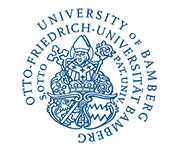
 Mette Zølner is Associate Professor in the Department of Management, Society and Communication at Copenhagen Business School, Denmark. She holds a Ph.D. in Sociology from the European University Institute in Florence. Her research interests lay within the broad field of languages, identities and organizations with a particular interest in exploring whether and how organizations and their social actors are shaped by the cultural and institutional contexts in which they operate. She is particularly interested in how practitioners operate at the interface between global and local practices and the implications it may have for HR, management, communication and identities. Working from within humanities and social sciences, she has explored these questions from a social constructionist approach in a number of articles and books (i.e. Global Collaboration: Intercultural experiences and learning, Sage, 2012 (co-edited with M.C. Gertsen & A.-M. Søderberg); and “Being a ‘modern Indian’ in an off-shore centre in Bangalore: Cross-cultural contextualization of organizational identification”, European Journal of International Management, 2014, 8 (2): 179 – 204 (with M.C. Gertsen); Young Business Leaders: Between Utility and Utopia. Brussels: P.I.E.- Peter Lang, 2009. Her current research addresses the question the implications of mobility for identities. At the CBS, Mette Zølner’s teaching includes courses on intercultural management and globalization, and Ph.D.-courses on qualitative methods and doing interviews in multicultural and –linguistic research settings.
Mette Zølner is Associate Professor in the Department of Management, Society and Communication at Copenhagen Business School, Denmark. She holds a Ph.D. in Sociology from the European University Institute in Florence. Her research interests lay within the broad field of languages, identities and organizations with a particular interest in exploring whether and how organizations and their social actors are shaped by the cultural and institutional contexts in which they operate. She is particularly interested in how practitioners operate at the interface between global and local practices and the implications it may have for HR, management, communication and identities. Working from within humanities and social sciences, she has explored these questions from a social constructionist approach in a number of articles and books (i.e. Global Collaboration: Intercultural experiences and learning, Sage, 2012 (co-edited with M.C. Gertsen & A.-M. Søderberg); and “Being a ‘modern Indian’ in an off-shore centre in Bangalore: Cross-cultural contextualization of organizational identification”, European Journal of International Management, 2014, 8 (2): 179 – 204 (with M.C. Gertsen); Young Business Leaders: Between Utility and Utopia. Brussels: P.I.E.- Peter Lang, 2009. Her current research addresses the question the implications of mobility for identities. At the CBS, Mette Zølner’s teaching includes courses on intercultural management and globalization, and Ph.D.-courses on qualitative methods and doing interviews in multicultural and –linguistic research settings.
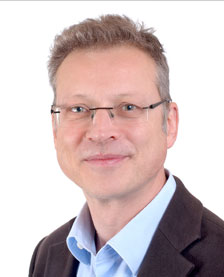 Michael has several years of work experience with major consultancies and companies. He has a first-class honours degree in Economics from London University and an MSc in Industrial Relations and Personnel Management from LSE. Michael has conducted a variety of consulting and research assignments with cutting-edge multinational organisations mostly from the financial, automotive, telecommunications, chemical, electrical engineering and electronics industries. He has also consulted humanitarian agencies, government and the United Nations. He has worked in his native Germany, Australia, the USA, Colombia, Spain and Britain and speaks English and Spanish fluently.
Michael has several years of work experience with major consultancies and companies. He has a first-class honours degree in Economics from London University and an MSc in Industrial Relations and Personnel Management from LSE. Michael has conducted a variety of consulting and research assignments with cutting-edge multinational organisations mostly from the financial, automotive, telecommunications, chemical, electrical engineering and electronics industries. He has also consulted humanitarian agencies, government and the United Nations. He has worked in his native Germany, Australia, the USA, Colombia, Spain and Britain and speaks English and Spanish fluently.
 Silke Anger is Head of the Research Department “Education, Training, and Employment Over the Life Course” at the Institute for Employment Research (IAB) in Nuremberg and Professor of Economics, in particular Economics of Education, at the Otto Friedrich University of Bamberg since 2013.
Silke Anger is Head of the Research Department “Education, Training, and Employment Over the Life Course” at the Institute for Employment Research (IAB) in Nuremberg and Professor of Economics, in particular Economics of Education, at the Otto Friedrich University of Bamberg since 2013.
 Herbert Brücker is Head of the Department for Migration and International Labour Studies at the Institute for Employment Research (IAB) since 2005 and Professor of economics at the University of Bamberg since 2008. He completed a degree in sociology at the University of Frankfurt in 1986 and attained subsequently his doctorate in economics from the University of Frankfurt in 1994. In 2005 Herbert Brücker received his habilitation in economics from the University of Technology in Berlin. From 1988 to 2005 he held research positions at the University of Frankfurt, the German Development Institute (GDI) and the German Institute for Economic Research (DIW) in Berlin. Herbert Brücker was Visiting Professor at the Aarhus School of Business from 2004 to 2005. He also is head of the department for Economic Migration and Integration Studies at the Berlin Institute for Empirical Integration and Migration Research (BIM) at the Humboldt-University Berlin. His research interests cover international migration, integration of immigrants and European Integration. He has published 150 monographs and articles, inter alia in journals such as the Review of Economic Studies, European Economic Review, Economic Policy and the Scandinavian Journal of Economics.
Herbert Brücker is Head of the Department for Migration and International Labour Studies at the Institute for Employment Research (IAB) since 2005 and Professor of economics at the University of Bamberg since 2008. He completed a degree in sociology at the University of Frankfurt in 1986 and attained subsequently his doctorate in economics from the University of Frankfurt in 1994. In 2005 Herbert Brücker received his habilitation in economics from the University of Technology in Berlin. From 1988 to 2005 he held research positions at the University of Frankfurt, the German Development Institute (GDI) and the German Institute for Economic Research (DIW) in Berlin. Herbert Brücker was Visiting Professor at the Aarhus School of Business from 2004 to 2005. He also is head of the department for Economic Migration and Integration Studies at the Berlin Institute for Empirical Integration and Migration Research (BIM) at the Humboldt-University Berlin. His research interests cover international migration, integration of immigrants and European Integration. He has published 150 monographs and articles, inter alia in journals such as the Review of Economic Studies, European Economic Review, Economic Policy and the Scandinavian Journal of Economics.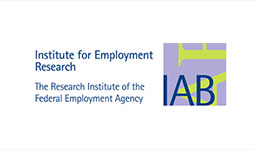
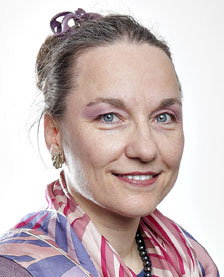 Dr Cordula Barzantny is Professor of Human Resource Management with a particular focus on International and Intercultural Management at Toulouse Business School (TBS).
Dr Cordula Barzantny is Professor of Human Resource Management with a particular focus on International and Intercultural Management at Toulouse Business School (TBS).
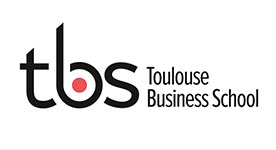
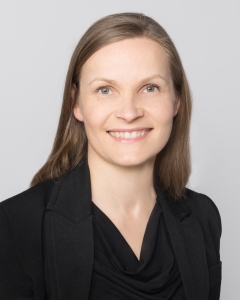 Liisa Mäkelä is Professor of Human Resource Management at the University of Vaasa, School of Management, Finland. Her research interests are combination of Management and Work Psychology and she has Doctoral degrees on both disciplines. Mäkelä’s research focus on the international workforce and occupational well-being, career paths and work-life interface among international professionals. Leadership and gender issues are also part of her areas of interest. She has published her research in international journals including Human Resource Management and International Journal of Human Resource Management, and as book chapters. Her publications have covered themes such as work-family conflict and enrichment of international business travelers, expatriates, and global careerists, and occupational well-being international business travelers. Her publications have also shed a light on dual career and gender issues related to international work context. Mäkelä has also acted as co-editor for a book on Work-life Interface in International Career Context. She has also acted as a referee for several international journals. Mäkelä has acted as visiting scholar in Monash University, Melbourne, Australia. She is currently supervising PhD students on the topics such as expatriate well-being, partners of expatriates, dual career expatriates, leadership in complex environments and mindfulness in organisations.
Liisa Mäkelä is Professor of Human Resource Management at the University of Vaasa, School of Management, Finland. Her research interests are combination of Management and Work Psychology and she has Doctoral degrees on both disciplines. Mäkelä’s research focus on the international workforce and occupational well-being, career paths and work-life interface among international professionals. Leadership and gender issues are also part of her areas of interest. She has published her research in international journals including Human Resource Management and International Journal of Human Resource Management, and as book chapters. Her publications have covered themes such as work-family conflict and enrichment of international business travelers, expatriates, and global careerists, and occupational well-being international business travelers. Her publications have also shed a light on dual career and gender issues related to international work context. Mäkelä has also acted as co-editor for a book on Work-life Interface in International Career Context. She has also acted as a referee for several international journals. Mäkelä has acted as visiting scholar in Monash University, Melbourne, Australia. She is currently supervising PhD students on the topics such as expatriate well-being, partners of expatriates, dual career expatriates, leadership in complex environments and mindfulness in organisations. Vesa Suutari is Professor of Human Resource Management at the University of Vaasa, School of Management, Finland. He has also previously acted as Dean of the Faculty of Business Studies and the Vice Rector of the University for seven years. His research interests are on international human resource management and cross-cultural management. Suutari has published 55 international journal articles in journals like Human Resource Management, Journal of World Business and International Journal of Human Resource Management on issues such as European management cultures, expatriate management, self-initiated expatriation, global leadership, global careers, and work-life balance issues in international career context. He has also published over 30 book chapters and has acted as one of the editors for books on topics such Work-life Interface in International Career Context and Management of Global Careers (in press). He has already supervised twelve graduated doctorates before starting the supervision of the ph.d. students he is supervising at the moment. Suutari has also inspected dissertations in various countries. His academic expert roles have involved different positions such as board membership of the European Academy of Management and membership of editorial boards in several journals. Suutari has also acted as one of the quest editors in many journal special issues on international mobility and careers and is one of the permanent organizers of EIASM Workshop on Expatriation and EURAM track on Expatriation. He has been ranked among most cited authors in the field of expatriation in the world, and many of the articles he has been co-authoring have been awarded as well as listed among the most impactful articles in the field.
Vesa Suutari is Professor of Human Resource Management at the University of Vaasa, School of Management, Finland. He has also previously acted as Dean of the Faculty of Business Studies and the Vice Rector of the University for seven years. His research interests are on international human resource management and cross-cultural management. Suutari has published 55 international journal articles in journals like Human Resource Management, Journal of World Business and International Journal of Human Resource Management on issues such as European management cultures, expatriate management, self-initiated expatriation, global leadership, global careers, and work-life balance issues in international career context. He has also published over 30 book chapters and has acted as one of the editors for books on topics such Work-life Interface in International Career Context and Management of Global Careers (in press). He has already supervised twelve graduated doctorates before starting the supervision of the ph.d. students he is supervising at the moment. Suutari has also inspected dissertations in various countries. His academic expert roles have involved different positions such as board membership of the European Academy of Management and membership of editorial boards in several journals. Suutari has also acted as one of the quest editors in many journal special issues on international mobility and careers and is one of the permanent organizers of EIASM Workshop on Expatriation and EURAM track on Expatriation. He has been ranked among most cited authors in the field of expatriation in the world, and many of the articles he has been co-authoring have been awarded as well as listed among the most impactful articles in the field.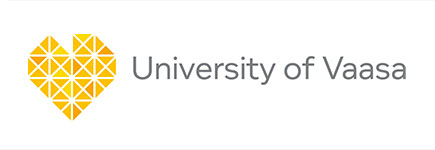
 Lénaïck is Head of Global Mobility Policy based in Toulouse, France and specialises in Human Resources.
Lénaïck is Head of Global Mobility Policy based in Toulouse, France and specialises in Human Resources.

 Irene Bellodi is a psychologist and psychotherapist working as HR generalist at atrain gmbh, a global HR consulting company operating in the field of Talent & Leadership Development.
Irene Bellodi is a psychologist and psychotherapist working as HR generalist at atrain gmbh, a global HR consulting company operating in the field of Talent & Leadership Development.
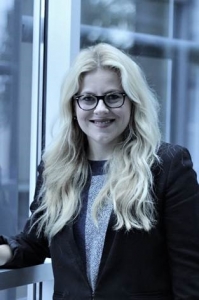

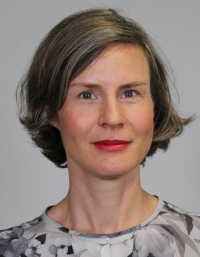
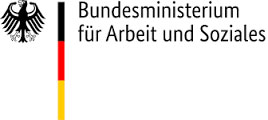
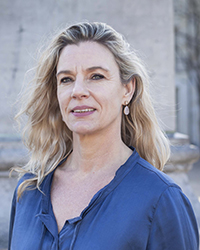



 Cara Booker is a Research Fellow at the Institute for Social and Economic Research at the University of Essex, UK. She received her PhD in Health Behavior Research from the University of Southern California. Cara received multidisciplinary postgraduate training with a focus on epidemiology, bio-statistics and public health. Her research utilises diverse and large longitudinal datasets to quantitatively analyse both the antecedent and correlates of health in adults and adolescents. Her research interests are risk and protective factors related to adolescent mental health, well-being and health related behaviors, specifically the impacts of social media, parental relationship quality and discord ad social inequalities. Cara has published in key academic journals
Cara Booker is a Research Fellow at the Institute for Social and Economic Research at the University of Essex, UK. She received her PhD in Health Behavior Research from the University of Southern California. Cara received multidisciplinary postgraduate training with a focus on epidemiology, bio-statistics and public health. Her research utilises diverse and large longitudinal datasets to quantitatively analyse both the antecedent and correlates of health in adults and adolescents. Her research interests are risk and protective factors related to adolescent mental health, well-being and health related behaviors, specifically the impacts of social media, parental relationship quality and discord ad social inequalities. Cara has published in key academic journals